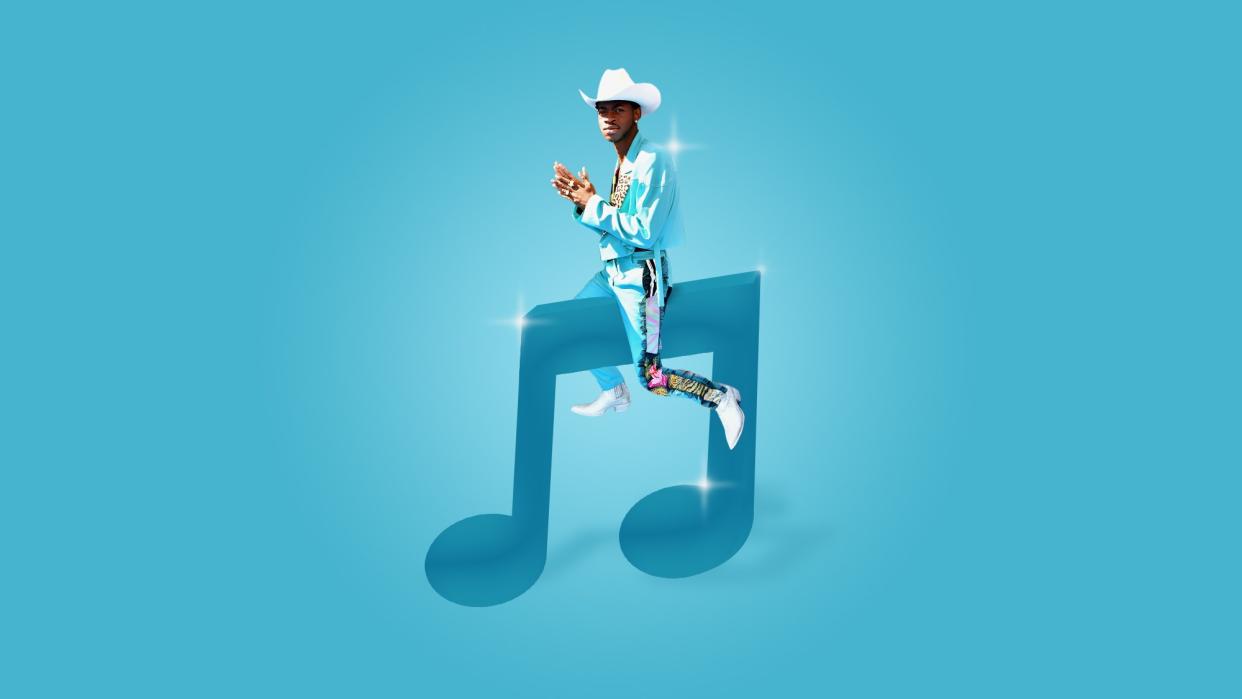Lil Nas X’s New EP Proves “Old Town Road” Wasn’t a Mirage

There’s supposed to be a point at which Lil Nas X can’t ride no more. But for the past six months, whenever that point has seemed to be on the horizon, Nas’s megahit “Old Town Road” has just kept galloping along, spurred by a social-media craze, the genre controversy it inspired, its improbable creation myth, Billy Ray Cyrus’s remix, and its recent star-studded music video. The remix has spent the past 11 weeks atop the Billboard 100; it continues to blare out of car windows and dominate party playlists. By leaps and bounds, “Old Town Road” has been the most inescapable song of 2019.
And clearly for no one more than Lil Nas X. On Friday, the 20-year-old released his first post–“Old Town Road” body of work, an eight-song EP titled 7 EP. It features six short new songs, pressed tight in the middle of an “Old Town Road” sandwich: The remix leads off, and the original closes. Lil Nas X is either emphasizing the hit or masking the new material.
Though, maybe it’s a little bit of both. The Song of the Spring is now making a play at being the Song of the Summer. But also, no, none of the new tracks quite lives up to it. Really, how could they? Pop’s biggest stars haven’t been able to dethrone “Old Town Road.” Is it any wonder that Lil Nas X can’t?
The album’s sequencing is a shame. “Old Town Road’ casts a shadow from two directions—and over material that would otherwise live outside the shade of his name-making hit. Of the new songs, only one (the Cardi B–featuring “Rodeo”) goes the trap-country route. The rest go all over the place. There are flirtations with ’90s rock, sultry jazz, and melodic SoundCloud rap; there’s production from Travis Barker (on “F9mily”), a Nirvana sample (on “Panini”), and big, lush strings (on “Kick It”). These songs touch on everything from the complicated evolution of Nas’s relationship with fans to selling weed to his desire to start a family. On most of the songs, Nas is quite literally using a different voice than the gravelly twang he trotted out on “Old Town Road.”
When Nas drops his country drawl, he’s easier to make out but tougher to read. His singing is flat, and his rapping is unaffected. He sounds more anonymous; this voice could be anyone’s. And he also sounds more his age—innocent and earnest. It becomes unclear whether a line like “Ayy, Panini, don't you be a meanie” is for real. (Panini is a reference to a character on the cartoon series Chowder.) Same with “We make pods, we the peas” on the nuclear-family fantasy “F9mily.” Has Nas gone dewy or ultra-kitschy?
Your interpretation will probably shape your opinion of the new songs. For me, the only new track that wholly and unequivocally works is “Rodeo,” the Cardi-assisted return to country-trap. It begins in a hurry, with a stampede of “Misirlou”-esque guitar plucking. But Nas takes his time with the beat, letting it settle into a steady trap trot. Back on his saddle, he picks up his Jackson Maine voice once again, and he and Cardi spin a duet about dueling lovers. “Now my heart, it feels like Brillo, I'm hard like armadillo / Can't be no nigga ex, I could only be his widow,” Cardi raps. The song is at once hard, witty, and, most importantly, assured. Lil Nas X sounds distinctive, not like he’s imitating Travis Scott or Lil Yachty, as he can on some of the EP’s other songs.
And yet, while Nas’s new experiments don’t quite yield successes, testing different lanes was a savvy strategy. 7 is as much about figuring out what made “Old Town Road” land as it is about delivering a satisfying sequel. Were listeners drawn to Nas’s cheeky trap-country hybridizing in particular, or his winking paint-splatter approach more generally? Was it the sound or the ethos? The answer seems to be that the two things are connected. That without his shoe-leather intonation and down-on-the-range melodies, Nas’s rhymes and trolls aren’t as effective. Picking up a lasso may have begun as a schtick, but his proficiency with it was no fluke. He was born to wear the black hat, and maybe not any other.
Originally Appeared on GQ

